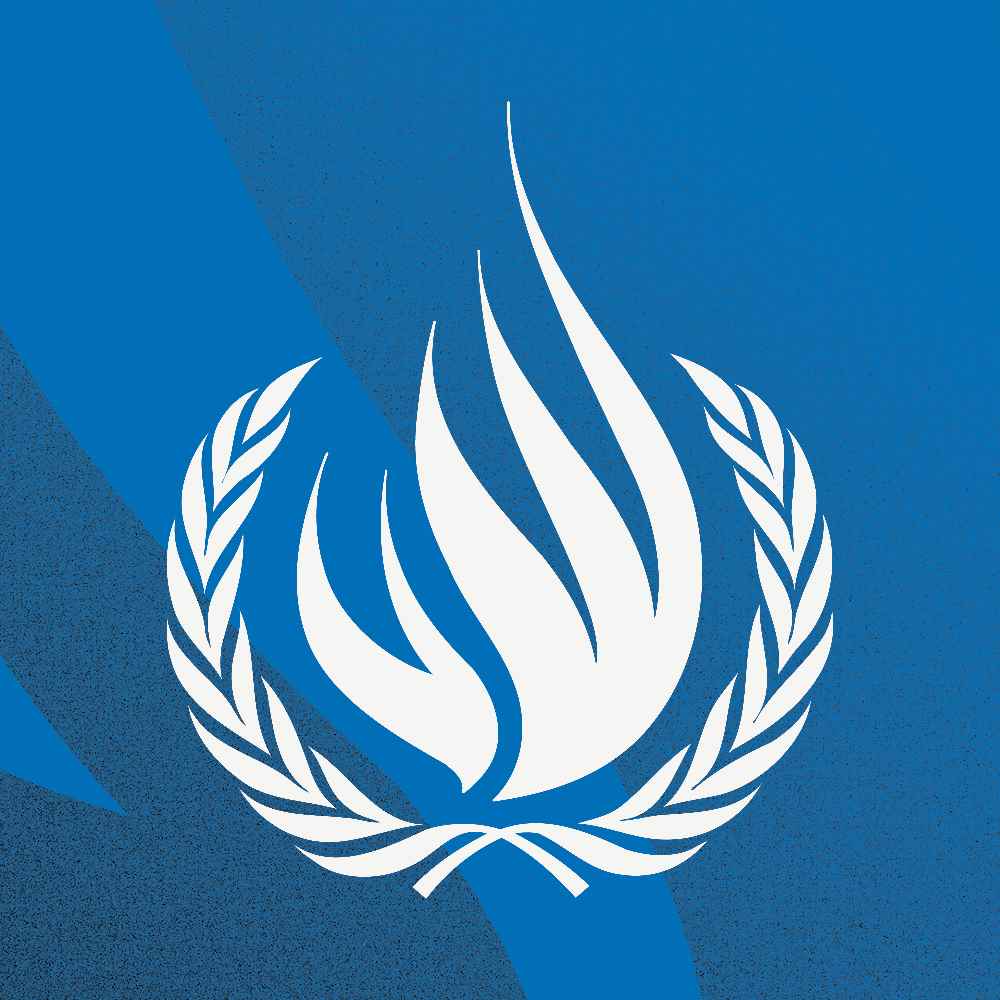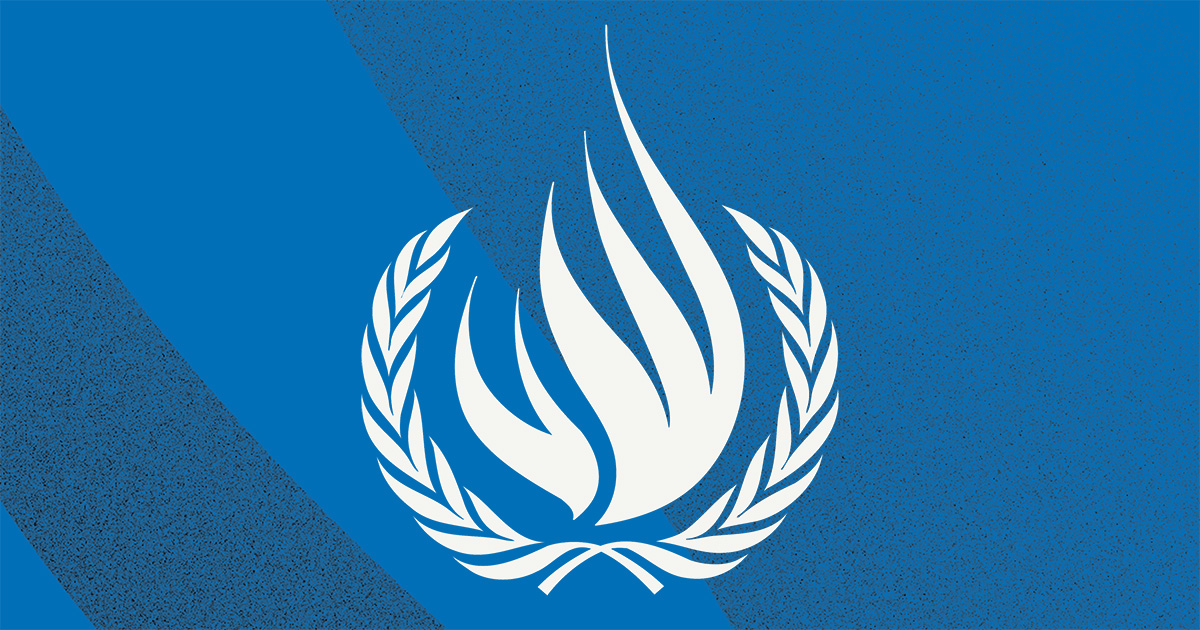
The Committee against Torture this morning opened its seventy-sixth session, which is being held in Geneva from 17 April to 12 May, during which it will review efforts by Brazil, Colombia, Ethiopia, Kazakhstan, Luxembourg and Slovakia to implement the provisions of the Convention against Torture and Other Cruel, Inhuman or Degrading Treatment or Punishment.
Mahamane Cisse-Gouro, Director of the Human Rights Council and Treaty Mechanisms Division at the Office of the High Commissioner for Human Rights, and Representative of the Secretary-General, said that this year marked the seventy-fifth anniversary of the adoption of the Universal Declaration of Human Rights by the United Nations General Assembly, as well as the thirtieth anniversary of the Vienna Declaration and Programme of Action. To mark this occasion, the Office of the High Commissioner for Human Rights was promoting specific human rights themes enshrined in the Universal Declaration each month. Next month"s theme would focus on protecting civic space and human rights defenders. Human rights defenders played an essential role in providing the Committee with important information to assist its monitoring of the implementation of the Convention. The initiative also included a campaign for the ratification of the core United Nations human rights treaties. Mr. Cisse-Gouro expressed hope that the members of the Committee would participate actively.
High Commissioner for Human Rights Volker Türk said to the Human Rights Council on 27 February 2023 that the United Nations human rights treaty body system had made profound gains and achievements in the field of human rights and needed to be honoured, preserved and far better funded. Mr. Cisse-Gouro said that the role of the United Nations anti-torture mechanisms within that system was critical. He highlighted the importance of close interaction between the Committee and the Subcommittee on Prevention of Torture, recalling that this year marked the twentieth anniversary of the adoption of the Optional Protocol to the Convention against Torture.
Torture and ill-treatment continued to be practiced with impunity throughout the world, and victims of such abuse or their relatives rarely obtained redress. The Committee’s recent concluding observations revealed worrying issues: poor treatment and conditions of detention of persons deprived of liberty; abuse of emergency powers and ruthless response to criminal violence; excessive use of force, particularly by law enforcement agencies during demonstrations; the widespread occurrence of conflict-related sexual violence; and frequent violations of the principle of non-refoulement. Efforts to revitalise a worldwide consensus on human rights were clearly needed, with an emphasis on the absolute prohibition of torture and ill-treatment enshrined in the Universal Declaration of Human Rights and the Convention against Torture.
This year also marked the thirtieth anniversary of the endorsement by the United Nations General Assembly of the “Paris Principles” relating to the status of national human rights institutions. The Paris Principles were a crucial tool for protecting and promoting human rights at the national level and had been instrumental in setting standards for Member States to establish national human rights institutions. United Nations Secretary-General António Guterres said these institutions held governments accountable and helped to achieve a culture of human rights in their countries, often in the face of complex challenges. Since 2015, national human rights institutions and national mechanisms for the prevention of torture had had the possibility of meeting in private with the Committee, a practice that should be encouraged and continued. During this session, the Committee would meet with the national human rights institutions of Colombia, Ethiopia, Kazakhstan, Luxembourg and Slovakia and the national preventive mechanisms of Brazil, Kazakhstan and Luxembourg.
The Office of the High Commissioner for Human Rights continued to support efforts to strengthen the treaty body system and was finalising the implementation plan for the conclusions adopted by the Chairpersons of the treaty bodies in June 2022. These had the potential to significantly improve the Committee’s work, including by introducing a predictable timetable for the consideration of reports submitted by States parties and improving the capacity of States parties and other stakeholders to plan and cooperate more effectively with the treaty body system. The feasibility of such an implementation plan would, however, depend on the human and financial resources allocated to it. There was chronic underfunding of the treaty body system that had led to significant delays in the consideration of initial and periodic reports of States parties and individual communications. The Office of the High Commissioner would continue its efforts to secure the necessary funding for the effective functioning of treaty bodies.
In closing, Mr. Cisse-Gouro expressed the Secretariat"s full support for the Committee’s activities, and wished it every success in its work.
Claude Heller, Committee Chairperson, said that during the session, in addition to conducting in-person dialogues to review the reports of Brazil, Colombia, Ethiopia, Kazakhstan, Luxembourg and Slovakia, the Committee would also prepare and adopt lists of issues for Burundi and Egypt and a list of issues prior to reporting for Portugal. Further, it would consider individual communications, and report on follow-up to concluding observations and on reprisals. It would consider 10 communications on the merits, three communications on admissibility, as well as five requests for discontinuance of communications.
On Monday, 8 May, follow-up reports would be presented by the Committee’s Rapporteur for follow-up to concluding observations and by the Committee’s Rapporteur for follow-up on decisions adopted under article 22, and the Committee’s Rapporteur on reprisals would also present cases and allegations of reprisals. The Committee would also hear a presentation from the Chair of the Subcommittee on Prevention of Torture and Other Cruel, Inhuman or Degrading Treatment on the Subcommittee’s sixteenth annual report in a public meeting on Monday, 1 May. The Committee was also scheduled to adopt its own annual report in a public meeting on Friday, 12 May.
Mr. Heller thanked States, national human rights organizations, civil society organizations and the Secretariat for their support of the Committee.
The Committee adopted its provisional agenda for the session.
Summaries of the public meetings of the Committee can be found here, while webcasts of the public meetings can be found here. The programme of work of the Committee’s seventy-sixth session and other documents related to the session can be found here.
The Committee will next meet in public on Tuesday, 18 April at 10 a.m. to consider the sixth periodic report of Colombia (CAT/C/COL/6).







